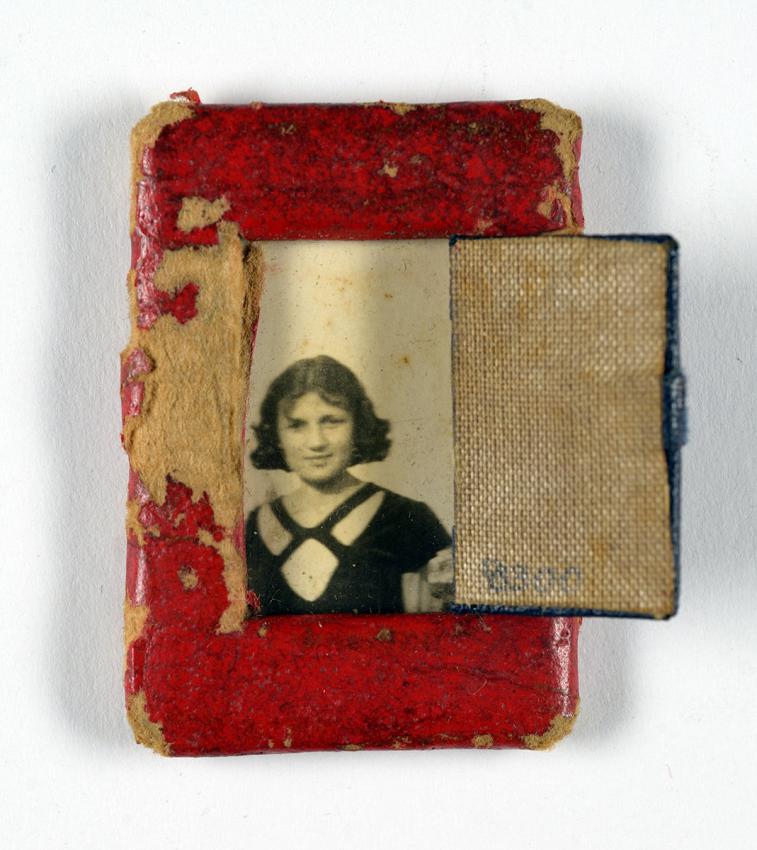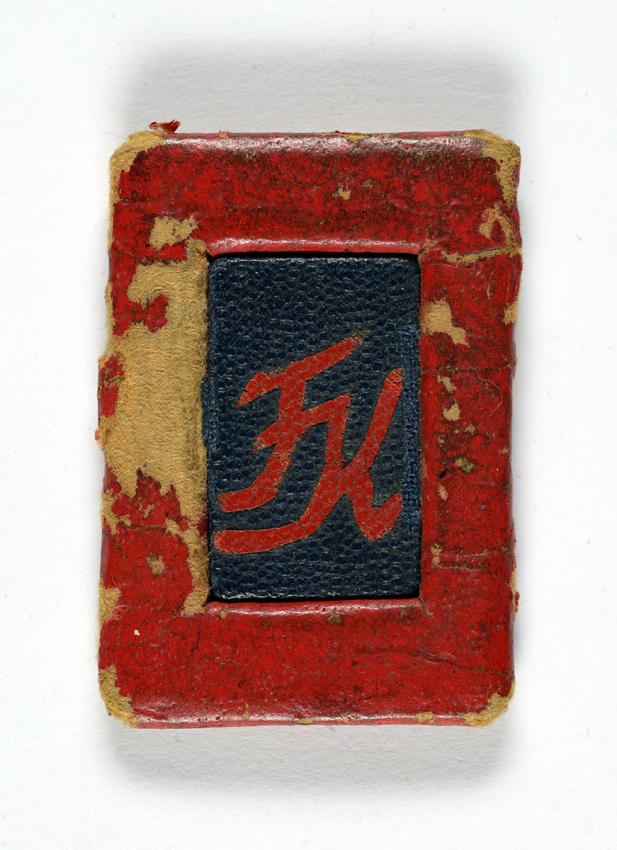
Yad Vashem Artifacts Collection
Donated by Sara (Kessel) Shenfeld, Tel-Aviv, Israel


Yad Vashem Artifacts Collection
Donated by Sara (Kessel) Shenfeld, Tel-Aviv, Israel

Sunday to Thursday: 09:00-17:00
Fridays and Holiday eves: 09:00-14:00
Yad Vashem is closed on Saturdays and all Jewish Holidays.
Entrance to the Holocaust History Museum is not permitted for children under the age of 10. Babies in strollers or carriers will not be permitted to enter.

Yad Vashem Artifacts Collection
Donated by Sara (Kessel) Shenfeld, Tel-Aviv, Israel


Yad Vashem Artifacts Collection
Donated by Sara (Kessel) Shenfeld, Tel-Aviv, Israel

In 1942 Gershon Henoch and Frania Kessel, together with their three-year-old daughter, Sara, and other members of the family were deported to the Piotrków ghetto where "Aktions"- brutal Nazi round-ups of Jews, starvation and disease were part of daily life. Despite the harsh conditions and the struggle to survive during this period, Gershon Henoch managed to make a pendant to give to his wife as a present. The pendant was crafted as a book with a photograph of Frania inside, and was decorated with her initials.
Close to the liquidation of the ghetto, the family was separated, and its members deported to different concentration camps. Gershon Henoch was deported to Buchenwald, while Frania and little Sara were deported to Ravensbrück where they were housed in a block for women and children. Their clothes and personal possessions were not taken from them, but a large X was painted on the back of their shirts as an alternative to the wearing of prison uniforms.
Later Sarah and Frania were transferred to the Bergen-Belsen camp. In the general chaos that reigned in the disease-ridden camp, mother and daughter waited to die together with thousands of other prisoners. Tragically, Frania Kessel died three weeks after the camp was liberated, and six-year-old Sarah was left alone armed with her mother's possessions: a shirt painted with a large X and the pendant that had been made for Frania.
Sarah was eventually reunited with her grandmother and discovered that her father had also survived, and the three immigrated to Israel.
Yad Vashem Artifacts Collection
Donated by Sara (Kessel) Shenfeld, Tel-Aviv, Israel

Thank you for registering to receive information from Yad Vashem.
You will receive periodic updates regarding recent events, publications and new initiatives.

"The work of Yad Vashem is critical and necessary to remind the world of the consequences of hate"
Paul Daly
#GivingTuesday
Donate to Educate Against Hate


Worldwide antisemitism is on the rise.
At Yad Vashem, we strive to make the world a better place by combating antisemitism through teacher training, international lectures and workshops and online courses.
We need you to partner with us in this vital mission to #EducateAgainstHate
The good news:
The Yad Vashem website had recently undergone a major upgrade!
The less good news:
The page you are looking for has apparently been moved.
We are therefore redirecting you to what we hope will be a useful landing page.
For any questions/clarifications/problems, please contact: webmaster@yadvashem.org.il
Press the X button to continue



